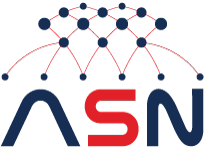Description: Our in-person conference is back with a focus on the notion of un/belonging and the re/shaping of US Americanness, intended as a diverse constellation of national understandings that construe individual and collective identities. Recent socio-political currents worldwide, and particularly in the US, illustrate how the multiple ways in which the frontiers and boundaries of the status quo can be completely transformed in a glimpse to accommodate a specific social order. Academia and society at large become witnesses to these rapid changes, making it imperative to not only act against the agents that perpetuate the bending of such boundaries to perpetuate the segregation of the population using gender, class, race, religion, or any other trait, but also to critically analyze how US American Culture recognizes, or not, these exclusionary practices. We thus propose looking at boundaries broadly understood as geopolitical, sociocultural and metaphorical to explore how they have been deployed to construct, or deconstruct, the dominant national identity and its narratives. In the same vein, un/belongings suggests the presence of Otherness and its flammable nature as a category that, far from the current situation, might seem clearly defined in its framing of who can or cannot be othered. Therefore, acceptability is being constantly reshaped and negotiated, as it happens with individual and collective identities in relation to the notion of US Americanness.
As the Overton Window—representing the spectrum of politically acceptable discourse—continues to shift in the United States, various forms of identity are increasingly marginalized and cast as outsiders or social pariahs. We aim to critically examine the implications of this shift by engaging in open, analytical discourse that interrogates the boundaries imposed on education and social integration. In particular, considering recent developments such as reductions in Diversity, Equity, and Inclusion (DEI) funding and increased governmental limitations imposed on universities, museums, and other institutions dedicated to intellectual inquiry.
Through this lens, the conference invites reflections on the multimodal representations of the notions and issues at hand in popular culture and discourses, focusing on the intrinsic diversity of belonging, inclusionary/exclusionary identities, supremacist as well as disenfranchised experiences of US Americanness. We look for evolving notions of belonging and unbelonging, situating them within broader frameworks of integration, alienation, community, and the historically constructed ideals of what the US represents.
Possible topics may be (but are not limited to):
- Reflections on the notion of belonging (or lack thereof) and how it has shaped the construction, integration, and erasure of US identities
- The confines of gender, ethnic, racial, sexual, political, religious identities in US culture, how they have been maintained, challenged, crossed, and reshaped
- The constructions and representations of US Americanness, as well as counter- and subcultures opposing the dominant national paradigm
- Representations of US Americanness in cinema, TV series, literature, music, theater, and graphic narratives
- The discursive and cultural configuration of US American exclusionary identities
- White privilege, Whiteness, White supremacism, and how ethnoracial status shapes un/belonging
- Frontiers, borders and borderlands broadly intended as means to re/define US national identities
- Transnational interpretations and receptions of what is “US American”
- The evolution of US American political rhetoric in relation to national identity
- Issues and cultural representations connected to “true” US Americanness, Trumpian identities, notions of alleged “greatness” and US supremacy
- Representations and narratives about US militarization, interventionism, coercion to integrate, belong, abide, or collaborate
- Climate change and how it reshapes belonging
Submission guidelines: We accept abstract proposals for individual presentations (≈ 250 words), as well as full panels (3 presenters, ≈ 250-word description of the panel plus brief abstracts of all papers). Please, email your proposal to po**************@gm***.com as a single attachment (.doc, .docx, .odt) including name, affiliation (if any), and contact email.
Given the theme of the conference, the organization will take adequate measures to ensure that in particular our participants traveling from the United States will be as safe as possible and their academic freedom will be protected.
Submission deadline: June 30th, 2025
Institution: PopMec & Universidad de Valladolid
For more information, click here.
